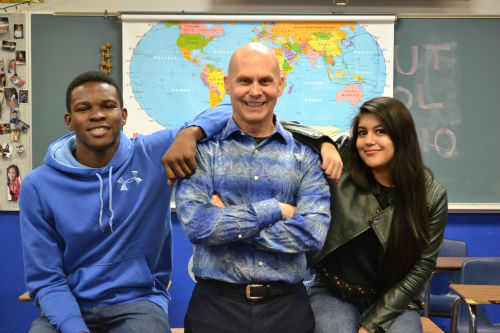
Dr. Tracey C. Burns is a Project Leader at the OECD’s Centre for Educational Research and Innovation, Directorate for Education and Skills in Paris (@OECD_Edu). She is considered a global expert on the subject of bullying. She notes “there is a huge amount of political attention being paid to the issue” and she summarizes this serious global problem as follows:
- In terms of prevalence, the bottom line is that it appears that traditional forms of bullying are remaining steady in terms of frequency while cyber bullying is increasing, although it is still not as common as face to face bullying.
- Bullies, motivated to enhance their status among their peers, bully in front of witnesses, whose approval (or at least tacit silence) è fondamentale. They tend to choose their victims from those who sit in the bottom line of the social ledger, those least able to fight back. And it works, both to raise the popularity of the bully and to hurt the victim.
- There are several commonly accepted myths about the causes of bullying for which there is no supporting evidence. These include claims that bullying stems from large class or school sizes, competition for grades, or other school life pressures. Another common assumption is that bullies suffer from poor self-esteem and insecurity.
Cosa si può fare? Abbiamo chiesto la nostra Top 12 Global Teacher Bloggers to share their answers to this question: Quali sono diversi modi reali che avete visto bullismo ridotto?
Riferito da Top 12 Global Blogger Todd Finley (finleyt), James Alan Sturtevant (jamessturtevant), Social Studies teacher at Big Walnut High School in Sunbury, Ohio and Author of You’ve Gotta Connect, makes the bold recommendation that reaching out to bullies can sometimes be as important as punishment. In his words, “Harsh consequences don’t always work, can make bullies worse, and sometimes evoke retribution for unfortunate victims.” Reaching out does not mean excusing but remaining in stealth dialogue to foster potential positive influence. Per saperne di più.
Pauline Hawkins (PaulineDHawkins), autore di Nucleo comune: 25 Modi per aiutare il vostro bambino riesce in un Cookie Cutter Sistema educativo, says the only way to reduce bullying is to be a good role model in your treatment of others, as a parent or teacher. She cautions, “The anti-bullying programs in schools will have little influence on students if the adults in their lives are not teaching and modeling respect.” Per saperne di più.
Adam Steiner (steineredtech) dispels myths about cyberbullying and provides much needed pragmatic advice to school administrators. One of many gems is that no school, no matter how genial it is in real life, is exempt from online bullying. Per saperne di più.
Da: Australia, Lisa Currie (RippleKindness), Ideatore del progetto Gentilezza Ripple, provided two insightful articles this month. The first proposes that social and emotional learning must be emphasized in schools to reduce bullying. Rather than merely blaming the bully, other factors must be looked into-such as a lack of character building education. Per saperne di più.
Lisa’s second article elaborates on the beneficiality of emotional learning by pointing to studies that show how the practice of kindness not only produces joy but also reduces bullying in schools. Per saperne di più.
Vicki Davis (coolcatteacher) uses personal experience to give surefire ways to nip bullying in the bud. One of her advisements is to form allies with peers. Her real world advice will be a must to concerned students. Per saperne di più.
Dalla Nuova Zelanda, Craig Kemp (mrkempnz) offers three tools that parents and administrators will find very assuring in combating bullying. One is creating a culture of trust from the top down, another is educating parents. He provides useful tips for how to get started in this process. Per saperne di più.
Tom Bennett (@ Tombennett71), Joe Bower, Susan Bowles (FloridaKteacher), Lisa Currie, Vicki Davis, Todd Finley, Pauline Hawkins, Craig Kemp, Karen Lirenman (KLirenman), Adam Steiner, Silvia Tolisano (langwitches), e Richard Wells (iPadWells) sono Il Global Ricerca per l'Educazione 2014 Top 12 Globale Maestro blogger.
Our special thanks to Dr. Tracey Burns at the OECD in Paris. Per ulteriori informazioni: http://oecdeducationtoday.blogspot.fr/2014/10/combatting-bullying-in-schools.html e http://www.oecd.org/edu/ceri/Spotlight%205-%20Infinite%20Connections.pdf
(Lead Photograph featuring TJ Coates and Dorali Arambula with James Alan Sturtevant is courtesy of Caroline Prater)
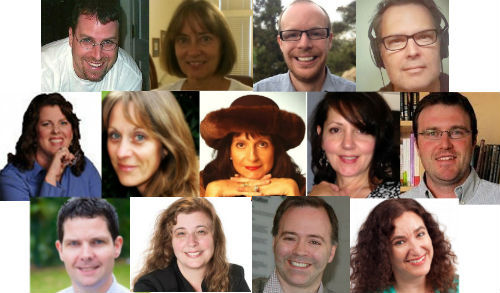

Unitevi a me e leader di pensiero di fama mondiale tra cui Sir Michael Barber (Regno Unito), Dr. Michael Block (Stati Uniti), Dr. Leon Botstein (Stati Uniti), Il professor Argilla Christensen (Stati Uniti), Dr. Linda di Darling-Hammond (Stati Uniti), Dr. MadhavChavan (India), Il professor Michael Fullan (Canada), Il professor Howard Gardner (Stati Uniti), Il professor Andy Hargreaves (Stati Uniti), Il professor Yvonne Hellman (Paesi Bassi), Il professor Kristin Helstad (Norvegia), Jean Hendrickson (Stati Uniti), Il professor Rose Hipkins (Nuova Zelanda), Il professor Cornelia Hoogland (Canada), Onorevole Jeff Johnson (Canada), Sig.ra. Chantal Kaufmann (Belgio), Dr. EijaKauppinen (Finlandia), Sottosegretario di Stato TapioKosunen (Finlandia), Il professor Dominique Lafontaine (Belgio), Il professor Hugh Lauder (Regno Unito), Signore Ken Macdonald (Regno Unito), Il professor Geoff Masters (Australia), Il professor Barry McGaw (Australia), Shiv Nadar (India), Il professor R. Natarajan (India), Dr. PAK NG (Singapore), Dr. Denise Papa (Stati Uniti), Sridhar Rajagopalan (India), Dr. Diane Ravitch (Stati Uniti), Richard Wilson Riley (Stati Uniti), Sir Ken Robinson (Regno Unito), Professor Pasi Sahlberg (Finlandia), Il professor Manabu Sato (Giappone), Andreas Schleicher (PISA, OCSE), Dr. Anthony Seldon (Regno Unito), Dr. David Shaffer (Stati Uniti), Dr. Kirsten Immersive Are (Norvegia), Cancelliere Stephen Spahn (Stati Uniti), Yves Theze (LyceeFrancais Stati Uniti), Il professor Charles Ungerleider (Canada), Il professor Tony Wagner (Stati Uniti), Sir David Watson (Regno Unito), Professor Dylan Wiliam (Regno Unito), Dr. Mark Wormald (Regno Unito), Il professor Theo Wubbels (Paesi Bassi), Il professor Michael Young (Regno Unito), e il professor Zhang Minxuan (Porcellana) mentre esplorano le grandi questioni educative immagine che tutte le nazioni devono affrontare oggi. Il Global Ricerca per l'Educazione della Comunità Pagina
C. M. Rubin è l'autore di due ampiamente lettura serie on-line per il quale ha ricevuto una 2011 Premio Upton Sinclair, “Il Global Ricerca per l'Educazione” e “Come faremo a Leggere?” Lei è anche l'autore di tre libri bestseller, Compreso The Real Alice in Wonderland, è l'editore di CMRubinWorld, ed è un disgregatore Foundation Fellow.
Segui C. M. Rubin su Twitter: www.twitter.com/@cmrubinworld

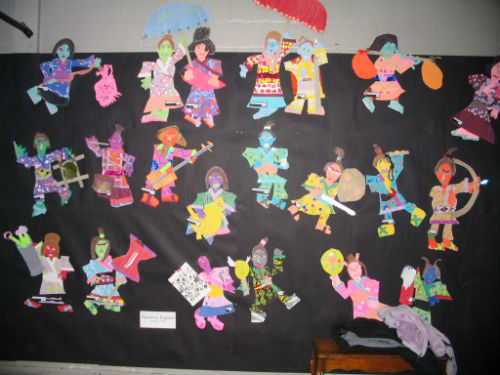
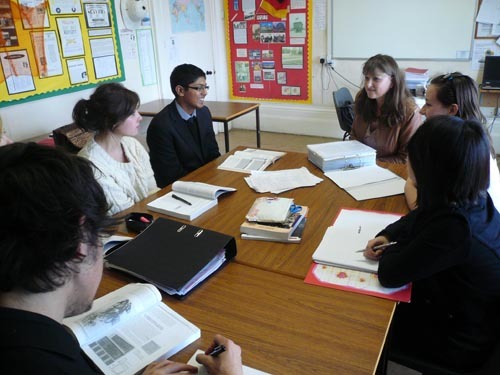

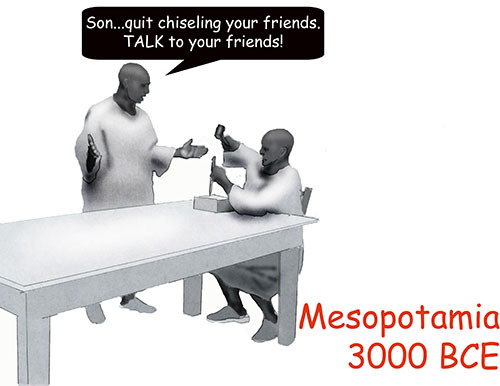
Commenti recenti